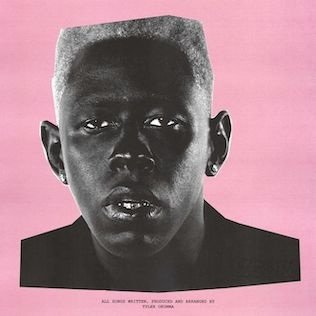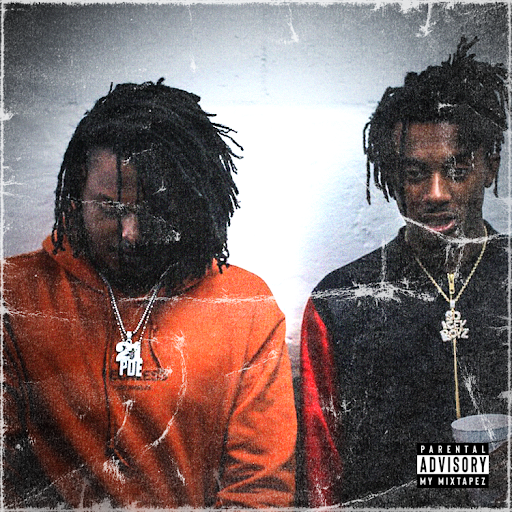The Beginner’s Guide to City Pop: A Timely!! Genre
By Romano Tucci
Streets of Tokyo at night (Image: Sérgio Rola, via Unsplash)
It’s 2:00 AM on a warm summer night. You are walking back home, bathed in the city's flashing lights when you decide to pop your headphones in and listen to your favorite “genre” of music: City Pop. Originating in Japan in the late 70s and peaking in the 80s, this form of music only started to gain a more international following in the 2010s and early 2020s owing to TikTok trends, the Hip-Hop scene, and the ease of access to music largely thanks to the YouTube algorithm. But what exactly is City Pop, and who are the main stars behind what has become one of the most popular genres of music stemming from East Asia? I will supply you with a guide of some of the main hits and names to look out for, as well as some more niche suggestions and fun facts to broaden your musical horizons.
First and foremost, City Pop can be defined as (mostly) Japanese songs inspired by more “Western” influences such as soft rock, funk, boogie, and elements of jazz. The target demographic at the time was the Japanese urban population, hence the name “City” Pop. Some recurring themes and musical techniques include an emphasis on summer, love, and night, incorporating the usage of electronic instruments, namely synthesizers and drum machines. Another mainstay of the genre is the inclusion of English in the lyrics, being featured most prominently in the chorus of these songs. This makes for some very catchy hooks, like Miki Matsubara’s Mayonaka no Door/Stay With Me, which has been listened to over a hundred million times on Spotify, providing us with the eponymous line in the song’s refrain.
Cover of Miki Matsubara’s Mayonaka no Door/Stay With Me (Image via Japan Billboard)
Speaking of Miki Matsubara, a good starting point for the uninitiated is her aforementioned hit single which was originally released in 1979 when she was still 19 years old. It was very well received at the time, peaking at the 28th position on the Oricon Japanese charts. It experienced a great resurgence in 2020 mainly attributed to its use in a TikTok trend where users would display photos of their Japanese parents accompanied by this song. With its infectious hook, English lyrics, bubblegum bass, and some electric guitar improvisation near the end of this record, it is no wonder why today it is considered a classic and pioneer of the City Pop genre.
Plastic Love album cover (Image via Warner Music Japan)
Of course, we cannot speak of City Pop without mentioning Maria Takeuchi’s Plastic Love produced by her husband, Tatsuro Yamashita (more on him later). Released in 1984, at a time when the genre’s popularity in Japan was growing, it came back into the spotlight in 2017 thanks to a very popular YouTube remix of the song. Containing many elements that define this category of music, such as prominently featuring the synthesizer to make the violin and trumpet-like sounds and its theme of lost love, it actually hit the top spot on the 2021 Oricon charts, largely surpassing its previous 86th place from the 1984 charts. Nowadays, many covers from modern J-Pop artists and bands exist, the most popular ones being CHAI’s 2020 version and Friday Night Plans’ 2018 iteration.
From being considered to have a very niche audience in the early to mid-2010s to its now immense popularity, City Pop has naturally permeated into more “mainstream” genres of music, most notably the Hip-Hop/Rap scene, where many artists sample cult classics from Japanese 80s music. Tyler, The Creator’s GONE GONE/THANK YOU from his 2019 album IGOR is directly inspired by Tatsuro Yamashita’s Fragile, with the American artist interpolating the main chorus of the 1998 song starting at the 4:30 mark. Yamashita is actually credited as a writer in Tyler, The Creator’s hit record. Another very popular example of this is Young Nudy, Pi’erre Bourne, and Playboi Carti’s single Pissy Pamper which never saw an official release due to it being leaked. However, it did gain huge popularity for its bizarre lyrics and became somewhat of an internet meme, skyrocketing its already large following to new heights. The now infamous beat of this record is sampled from Mai Yamane’s 1980 song Tasogare (Twilight), unbeknownst to most listeners. Who knew that the dream-like, hypnotic opening chords to this City Pop track would become so famous and yet so mysterious, with few people knowing the source behind one of the Atlanta and Ohio natives’ biggest songs ever made? Even more recently, Out of Time by The Weeknd from his latest album Dawn FM samples the beat from Tomoko Aran’s classic Midnight Pretenders to produce a whimsical and sorrowful ballad while preserving the essence of the original track by not modifying the key and only very slightly changing the tempo.
Anri’s Timely!! album cover (Image via Wikimedia Commons)
Another artist benefiting from the resurgence of City Pop is Anri, who is considered by many to be one of the most successful artists in her domain. Notable hits such as Last Summer Whisper, Remember Summer Days and Kanashimi ga Tomaranai have all been played millions of times on various streaming platforms. In fact, her album Timely!! is a must-listen for anyone wanting to immerse themselves into the world of City Pop, giving the listener a comprehensive overview of the different sounds, themes, and ambiances one can encounter.
Tatsuro Yamashita’s Christmas Eve cover (Illustration by Miki Tori, via Rate Your Music)
Finally, as the spirit of Christmas (or Bridgemas) is upon us, I took it upon myself to find a holiday classic by Tatsuro Yamashita, who is known as one of the founding fathers of City Pop, having started composing and singing in 1975 with his group Sugar Babe’s first and last album (this group also featured Taeko Onuki, who’s single, 4:00 A.M. is another first-class example of the variety of sounds found in this genre with a transverse flute solo). Christmas Eve is Yamashita’s most famous song to date, as well as being the most successful track in Japan in the 80s. Despite this, it has yet to gain popularity on an international scale. This may be due to its lack of accessibility on most streaming platforms, although both the English and original versions have been uploaded on YouTube. It takes inspiration from the Christmas carol O Holy Night with the main hook, sung in English: “Silent night (ooooh), Holy Night.” In addition, the song also includes an interlude referencing Pachelbel's Canon. This is definitely a must-add to your collection of Christmas tunes if you want to indulge in the holiday spirit.
The few songs and artists I have listed above are but a small sample of a treasure trove of different artists, songs, and sounds. In order to make your lives easier, I have made a Spotify playlist with a comprehensive list of tracks to listen to, as well as providing you with some YouTube links to the songs that unfortunately are not available on streaming services.
Spotify Link: https://open.spotify.com/playlist/4ksyaDJEMWIYpvaRQWhGms?si=9be52cfa1d9e4e00







